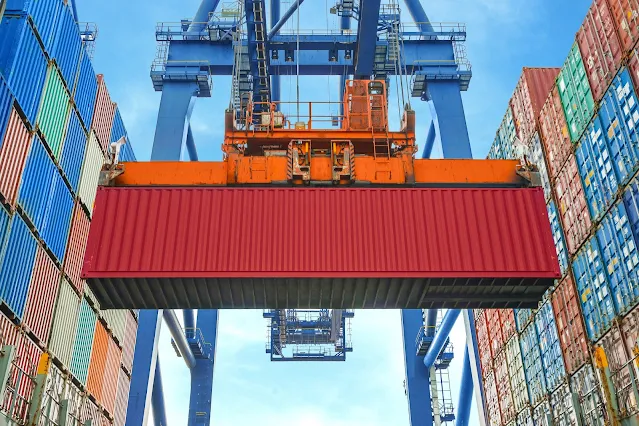Are you going to make a freight shipment and you are not sure if you should choose an FCL or an LCL? In this article, ExFrO tells you about the differences between FCL and LCL and what are the advantages of each of these modes of maritime transport.
What Are FCL And LCL in Maritime Transport?
The terms FCL and LCL refer to the
two main shipping methods: FCL full container shipments and LCL shipments or
maritime groupage.
An FCL or full container shipment,
as the name suggests, is a shipment in which a shipper's merchandise travels
inside a container without sharing space with other cargo. In an FCL, the
entire container is at the disposal of the importer or exporter.
In contrast, an LCL, or maritime
groupage, is a type of shipment in which the cargo travels inside a container
along with the cargo of other shippers. That is why this modality is also known
as a 'shared container'.
In logistics, the acronyms FCL and
LCL are often used by their English names:
●
FCL: Full Container
Load
● LCL: Less than Container Load
To decide which is the best option
for your shipment – FCL or LCL – there are four key aspects that, as
a shipper, you should be clear about before booking: volume, security, cost, and
urgency.
Differences
between FCL and LCL
Shipment Volume
Shipment volume refers to the number
of goods you are importing or exporting. It is usually the deciding factor in
choosing between an FCL or an LCL.
FCL and LCL: FCL shipments are
usually the cheapest when the load exceeds 10 standard pallets or 14 cubic
meters.
On the other hand, LCL shipments are
more suitable for smaller volume shipments, normally between 2 and 13 cubic
meters. Although it can also be profitable to send an LCL shipment below 2
cubic meters in some situations.
Cargo Security
It could be said that all shippers
need their cargo to travel safely. But not all shipments require the same level
of security.
There are loads that are more
sensitive to the changes and movements suffered by the goods during handling
and maritime transit.
FCL and LCL: In an FCL, the cargo
travels exclusively in a container, so it is usually a safer shipping method.
The cargo suffers less risk of coming into contact with that of other shippers
—as would happen in an LCL—, which could cause damage or contamination of the
merchandise.
But it must also be taken into
account that, in smaller volume shipments, the cargo can travel more safely and
protected in an LCL than in an FCL. Traveling more compactly, there is not so
much room for movement.
Shipping Cost
The cost of international
transportation is one of the main factors in the decision to ship FCL or LCL.
There are some guidelines you can follow, but there is a gray area where the
difference in FCL and LCL costs blurs.
FCL and LCL: For low-volume cargo
(between 2 and 13 m3), the cheapest option is usually LCL shipping. From 13 m3,
the most competitive option is usually the FCL, even if the container is not
completely filled.
But in some circumstances, it can pay
more to ship FCL, even below 13m3. In these cases, it is better to consider both
options and consult with your freight forwarder.
In addition to price, FCL and LCL
shipments also differ in rate stability. In general, FCL rates suffer from high
volatility. LCL rates, however, are much more stable.
Urgency
Planning the shipment in advance is
a good recommendation, but circumstances do not always allow it. Costs aside,
another important factor in deciding between FCL and LCL is how urgently you
need your shipment to reach its destination.
FCL and LCL: the FCL option is
usually the most suitable for shipments with very tight times or that must
arrive on a fixed date since LCL shipments usually work with longer closing
dates.
In addition, in the event that there
are transshipment ports, an LCL shipment is more at risk of delays due to
handling. Please note that the goods must be unloaded and reloaded at each of
the secondary ports.
One last thing you should consider:
in periods of high congestion, such as the months of August and September or
during the weeks leading up to Golden Week, it might be easier to book an LCL
than an FCL.











0 Comments